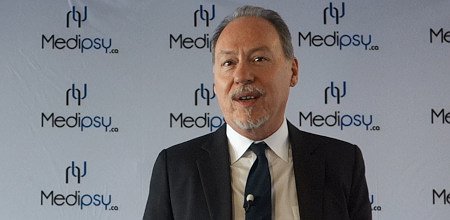That is the powerful message used for International Overdose Awareness Day, which takes place annually on August 31. In 2017, approximately 585,000 people worldwide died of psychoactive substance overdose. Most of these deaths could have been prevented.
Problematic use, abuse, and dependence on psychoactive substances are a widespread phenomenon that affects all categories of the population regardless of gender, socio-economic level, age, or ethnic and cultural origin. In Canada, about one in five people have experienced a substance use disorder in their lifetime (such as alcohol, cannabis, cocaine, prescription drug, etc.).
There are numerous negative impacts of psychoactive substance misuse on the social, physical, and mental levels. They are part of a continuum of severity ranging from small conflicts to relationship breakups, from minor failures at work to loss of employment, from stomach aches to cancer or cardiovascular disorders, from a gloomy mood to a mood disorder, from minor injuries to major sequelae. Accidental death linked to overconsumption—a scourge regularly reported in the media—is also one of the possible consequences. Many states and specialized organizations are now trying to prevent deaths caused by overdose.
In addition to preventive measures offered to the population, important and targeted actions can directly be taken by mental health professionals with patients who consult them. Every August 31, International Overdose Awareness Day reminds us of this! However, according to psychologist Andrew Tatarsky, it is not uncommon for psychologists and psychotherapists to be reluctant welcoming people who suffer from an addiction or who present risky drinking behaviors in their office.
Several prejudices shared and maintained by clinicians seem to contribute to this: “These are very difficult patients,” “You cannot do psychotherapy with someone who’s an addict,” or “Addiction is an incurable organic disease.” However, while these prejudices do not correspond to the complexity of the clinical reality, they harm those who seek help and who could benefit from psychotherapeutic intervention.
It has been proven that most patients with substance abuse problems are unwilling to stop even if they are greatly concerned about their own situation. Dr. Tatarsky’s position begins by giving up moralism, learning to work with ambivalence, and starting the treatment where the patient is.
Even with active drug use, it is possible to set goals for psychotherapy and encourage small changes. This is about developing a corrective relationship experience by promoting better emotion regulation and by helping the patient to better understand their substance usage. It is also necessary to offer concrete tools to the patient so they can regain more control and freedom, such as mindfulness and cognitive restructuring.
Throughout his clinical practice and with the advancement of scientific research, Dr. Tatarsky has progressively integrated several techniques and theoretical models to offer effective therapy methods that are adapted to patients who consult for problematic use, substance abuse, or addiction. Apart from the epistemological and ideological disagreement often encountered in the field of addiction, Dr. Tatarsky zealously evokes his clinical experience and guides clinicians towards an inspiring working method.
Christelle Luce, Ph.D, Psychologist
None

